Topical authority can help you rank for every single keyword in your niche.
Does it look like a dream come true?
Well, the truth is, it is possible.
So, what exactly is topical authority and how can you build it?
Let’s dive in.
Contents:
What Is Topical Authority?
Topical authority refers to a website’s expertise and credibility on a specific subject or niche.
It is the level of trust that a search engine assigns to your content on a particular topic.
In other words, having high topical authority means that users and search engines see your content as reliable, informative, and valuable.
You should consider this concept closely related to E-E-A-T (Experience, Expertise, Authoritativeness, Trustworthiness).
In fact, as of May 2023, it is confirmed that Google has been using it as a system to identify which experts are providing the most helpful information for a searcher’s news query.
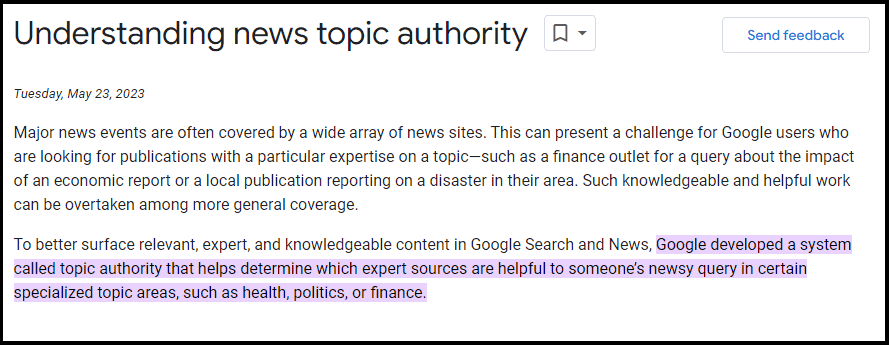
Now, let’s say you want to rank an article about “How to train a dog” on your website.
Of course, having a single post that covers “training a dog” would not be enough to prove you are an expert on this subject.
To build topical authority, you would need to cover everything about “Dogs“, including:
- Dog breeds
- Psychology of dog behavior
- Breed-specific training
- Best foods for dogs
- Health and grooming
- And more.
Having comprehensive and well-researched content on different aspects of your site topic would help establish your expertise and authority in the eyes of search engines.
As a result, you would have a higher chance of ranking for related keywords in your niche.
Why Is Topical Authority Important (For SEO)?
Google’s search engine ranks websites based on semantic associations with relevant topics.
More content on a subject means more relevant internal links, allowing both Google and users to find your content and helping you earn natural backlinks (if you are an expert in your industry, people will naturally mention you).
So, topical authority is crucial for SEO because it directly impacts your content ranking.
This means that the more trusted and knowledgeable you are on a particular subject, the higher your chances of appearing at the top of search engine results pages.
For example, a post about “how to bake a cake” from a food blogger with years of experience in baking would have higher authority compared to a post on the same topic from someone who has never cooked before.
Now, let’s dig a little deeper.
If you search on Google for “best foods for dogs”, you will see a list of websites that specialize in pet care with authority on this subject.
But why this low domain rating site is dominating the SERP with a featured snippet position?
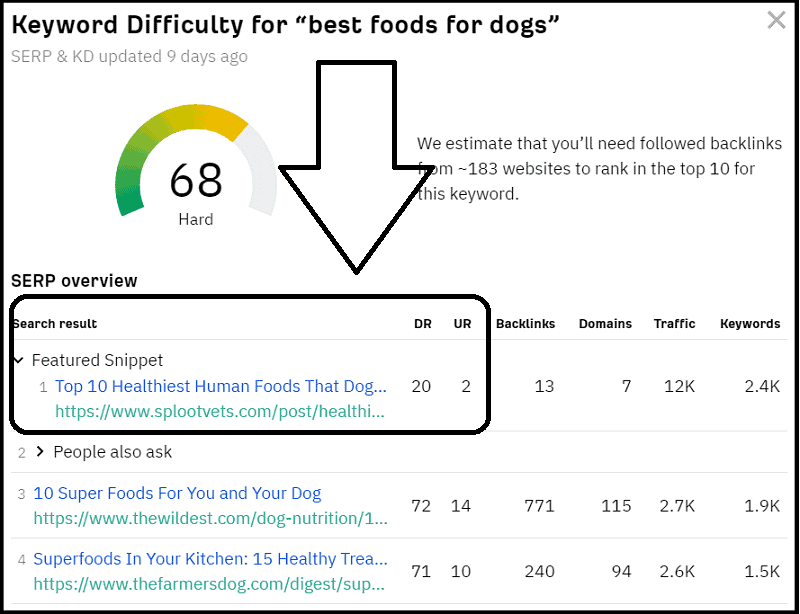
Probably because it has covered anything about that subject, going in-depth about other sub-topics too. On-page SEO, design, and UX are also great. Search intent is matched.
Plus, if you check their “About page“, you will see that other than dog aficionados, the team includes veterinarians as medical directors (which proves expertise and experience).
In short, whatever they are doing, they are doing it well, seeing the results!
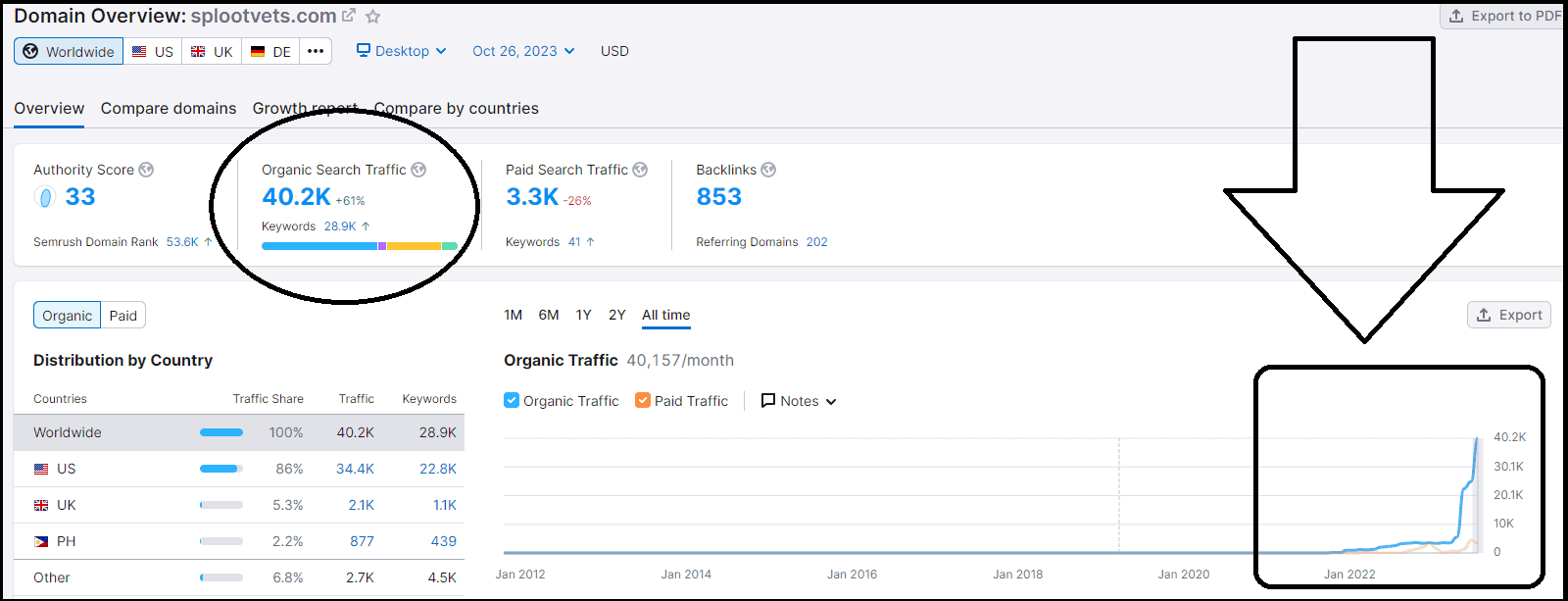
How Does Topical Authority Work?
No one knows how it really works.
However, we know that Google prioritizes the most relevant, helpful, and trustworthy pages for search results.
So, how can you establish yourself as an expert in your niche?
You can do this by:
- Consistently crafting informative and valuable content
- Making your writing easy to digest
- Naturally including relevant keywords
- Matching searcher intent by satisfying their needs
We also know that Google prefers publishers who are trustworthy, knowledgeable, and experienced, as evidenced by its algorithm updates and statements.
In short, topical authority helps content creators rank higher in their specific niche by showing Google that they are the go-to source for information on a particular subject.
Below is a brief timeline of the updates that have been prioritizing topical authority:
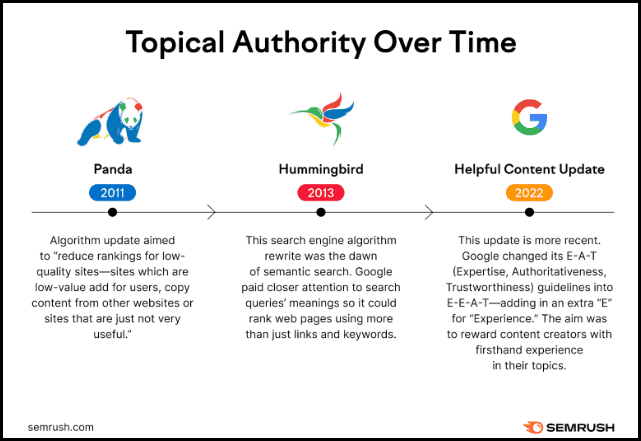
- 2011: Panda Update
Introduced to demote low-quality and spammy websites, copied content, or sites that are just not very useful.
- 2013: Hummingbird
Google launched a semantic search and the Knowledge Graph to provide users with more relevant results (without paying attention only to keywords and links).
- 2022: Helpful Content Update
The release of this update focused on delivering the most helpful and informative content for users. Google also introduced E-E-A-T (added another “E”, which stands for experience) to its renewed webmaster guidelines (Search Essentials), emphasizing the importance of firsthand experience in content creation.
How to Measure Topical Authority
Spoiler: there’s NOT an official metric for topical authority.
However, there are some ways to measure important changes, such as:
- Google Analytics
- Backlink Analysis
- Keyword Positions
Google Analytics
If you start building authority on a specific topic, an increase in website traffic could indicate success.
Use GA4 to measure traffic.
Go to Reports > Acquisition > Traffic acquisition:
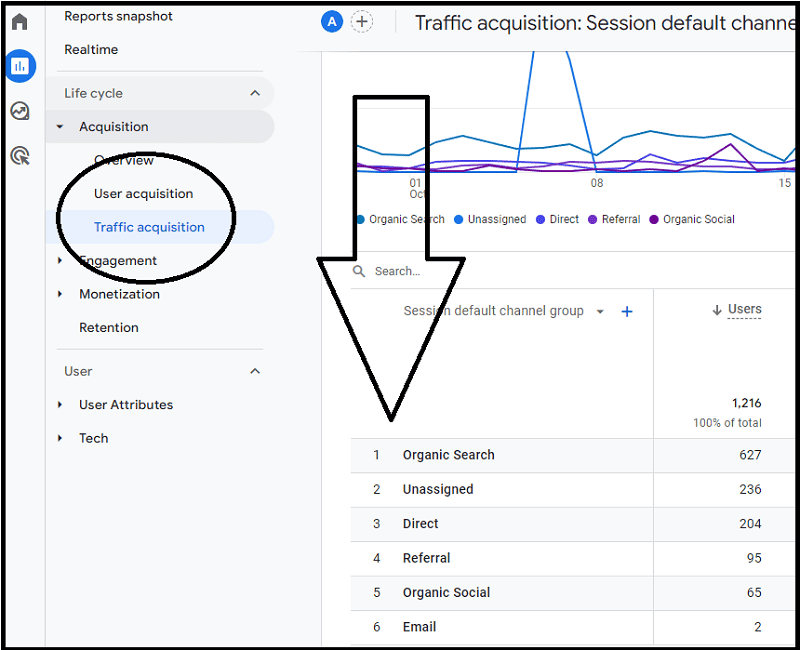
Then, filter for “Organic Search“.
You can also compare by date range:

And check if your efforts are working:
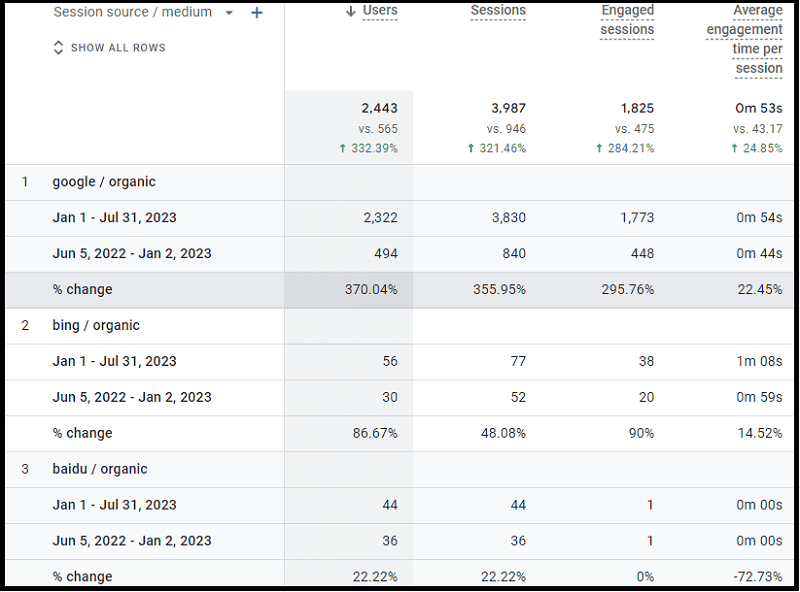
Backlink Analysis
The more authoritative and relevant your content is, the higher your chances of earning backlinks.
People will naturally link to your content when it provides value and expertise.
To measure this, you can use your favorite backlink analysis tool.
Ahrefs, for example, offers several features for verified projects and linking domains, such as tracking SEO metrics like new unique referring domains and backlinks:
![]()
If this number is increasing over time, it may be a sign that your content is building authority in its niche.
Keyword Positions
If you are ranking higher for relevant keywords in your niche, this is a strong indication of topical authority.
You can track keyword positions using your favorite tools.
But if you are tight on a budget, you can verify your website with Ahrefs using their keyword tracking feature:
![]()

5 Steps to Build Topical Authority
Now, how can you become an expert in your niche?
Follow these five steps:
- Do Keyword Research
- Create Pillars and Clusters
- Write In-Depth, Useful Content
- Organize Your Site Structure
- Build Quality Backlinks
1. Do Keyword Research
Start with choosing a seed keyword. This will be the main topic that you want to focus on.
For example, if your website is about cooking, a seed keyword could be “chicken recipes” (it’s clearly focusing on the topic, and it’s not too vague).
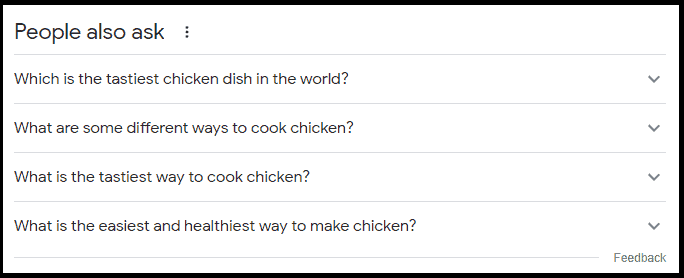
The next step is time to expand it into more specific long-tail keywords, such as:
- slow cooker chicken recipes
- easy chicken dinner ideas
- healthy recipes with chicken
- chicken breast recipes
- chicken thigh recipes
Now the question is, how can you find these terms?
There are tons of ways to look for related keywords:
But one of my favorite ones is with Keyword Surfer.
It’s an SEO Chrome extension that comes with some cool features, including extracting related terms and showing the monthly search volume for each one.
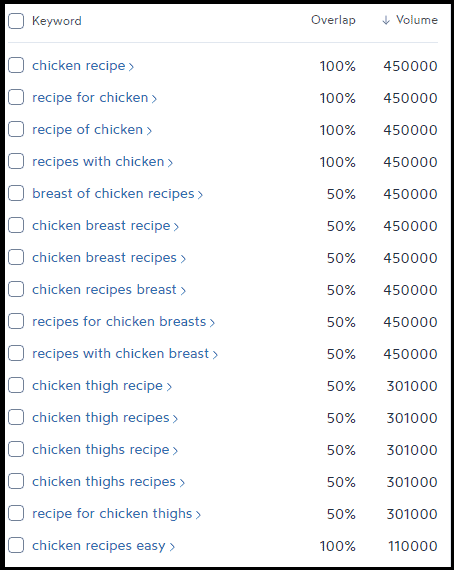
It also gives the estimated monthly traffic for each domain listed in the search results:
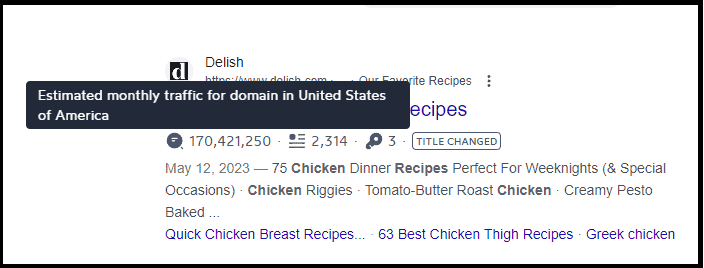
Together with the number of words on the page and how many times the exact keyword is used:
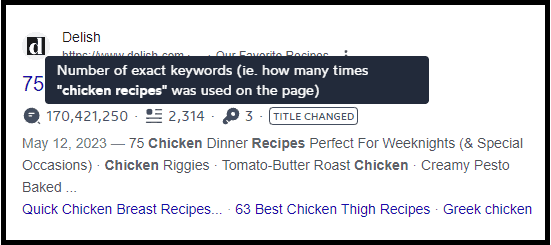
By analyzing three key data points, you can quickly evaluate the level of competition for a particular term. This information will help you make an informed decision on whether it’s worth pursuing it or not.
Another way to measure competition is via the free Keyword Difficulty tool by Ahrefs.
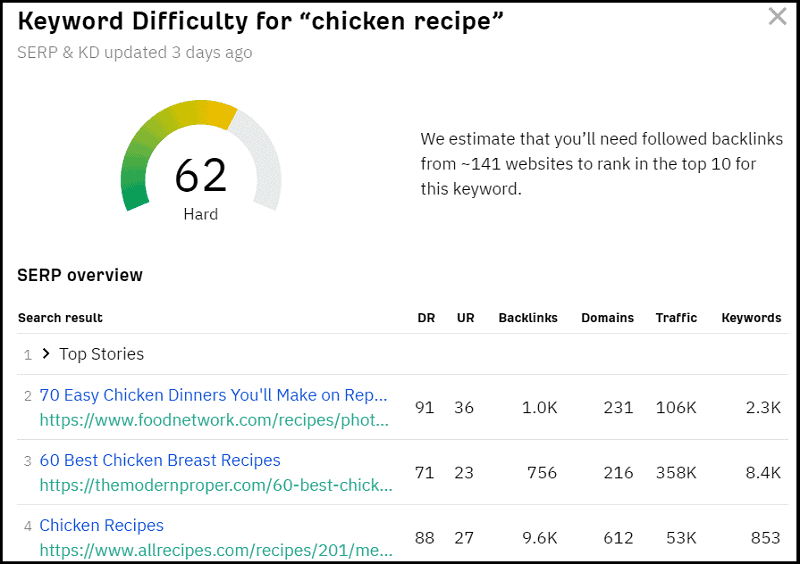
It gives, at a glance, an overview of the top results, including domain rating (DR), number of referring domains, and monthly traffic of each website in the SERP.
2. Create Pillars and Clusters
One of the best ways to build topical authority is by creating content clusters.
This means creating a main pillar page that covers a broader topic and then supporting it with several related cluster pages.
If, for example, you have a website about SEO, your main pillar page could cover “SEO: The Complete Guide“, and your cluster pages could be about different subtopics, such as:
- On-Page SEO
- Off-Page SEO
- Link Building
- Keyword Research
By linking all these pages together and providing high-quality content on each of them, you’ll signal to search engines that you are covering everything about that topic.
3. Write In-Depth, Useful Content
When it comes to building topical authority, quality and depth matter.
Creating thin content or simply regurgitating what other websites are saying won’t help establish your expertise.
Instead, focus on creating long-form content that delves deeply into a topic and provides value to the reader.
This kind of content is more likely to be shared and linked to by others, helping you build authority in your niche.
In fact, according to this SEO statistic, the first pages of search results contain on average 1500 words.
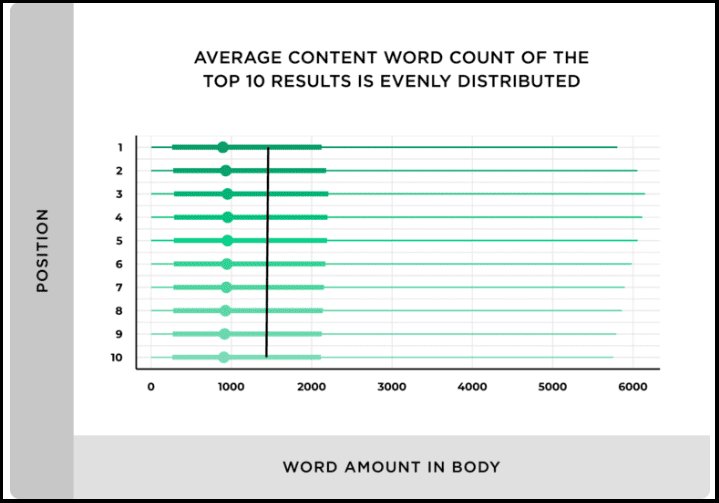
When creating content to establish your topical authority, it’s important to:
- Consider E-E-A-T (share your first-hand experience)
- Cover all the aspects of the topics and subtopics
- Satisfy search intent (e.g., how to optimize for Google Discover, top content marketing hacks, etc.)
- Add internal links to different relevant subject
- Refresh content, if it is outdated
- Use optimized images and videos to make the content more engaging
4. Organize Your Site Structure
Having a well-organized site structure is not only important for user experience but also for search engines to understand the hierarchy and relevance of your content.
Make sure your main topics are easily accessible from your homepage and that you interlink relevant pages within your website.
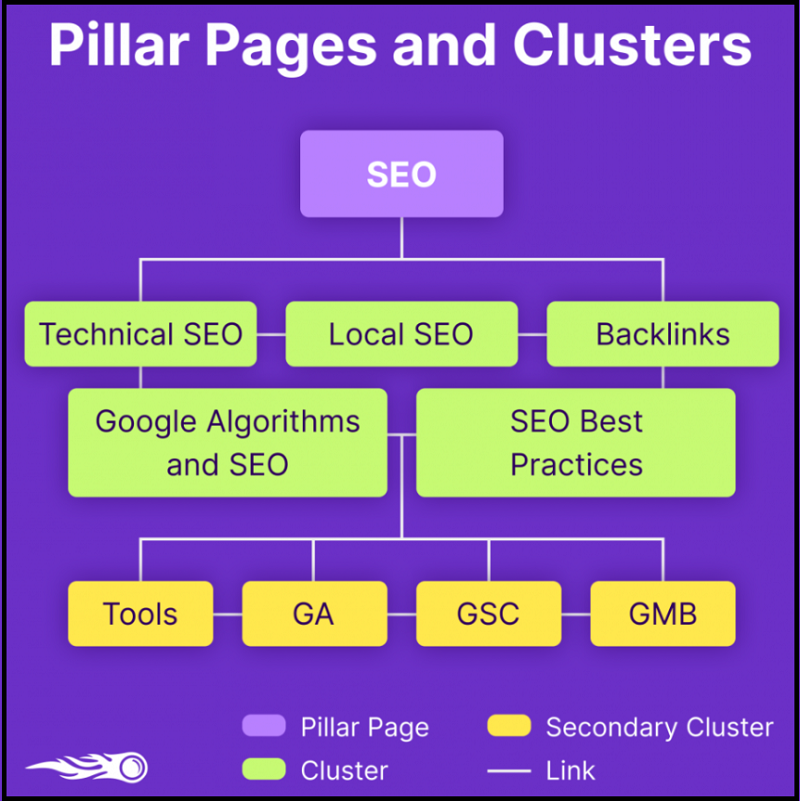
This will not only help establish topical authority but also improve overall SEO.
Create a sitemap to help search engines crawl your content more efficiently.
Then, remember to help users access your landing page with the right calls to action, such as buttons and forms.
5. Build Quality Backlinks
Last but not least, building quality backlinks is crucial to establish topical authority.
Getting high-quality mentions from authoritative websites signals to search engines that your content is trustworthy and valuable.
But remember, it’s not about quantity, it’s about quality. A few relevant and authoritative backlinks are more beneficial than a large number of low-quality ones.
You can build backlinks through:
If you ask me, guest blogging is my favorite way to expand my audience, and build new connections with content creators and influencers in my industry (not just for earning links).
The consistency of my work led to Google recognizing me as an entity and granting me a knowledge panel.
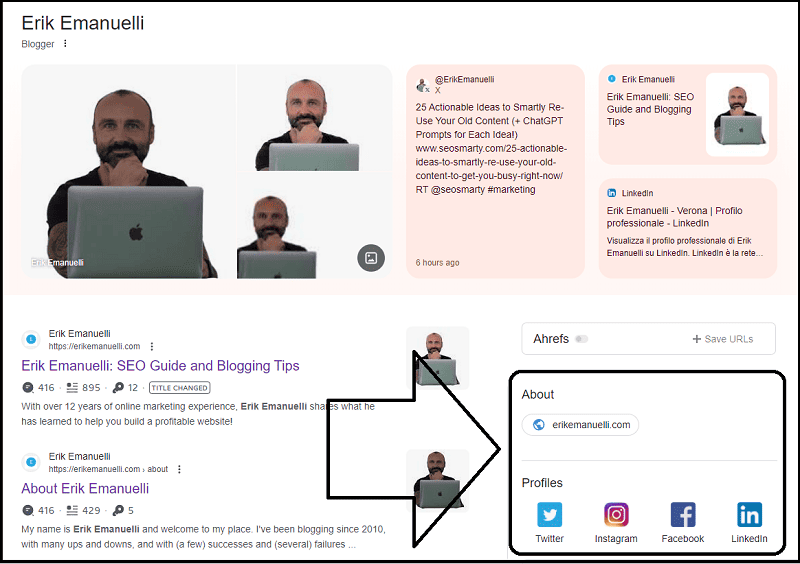
Topical Authority FAQs
Here are some of the most common questions you should have.
Q: What is the difference between Topical Authority and Domain Authority?
A: Topical authority is a measure of expertise and credibility in a specific topic or niche. It can be achieved through high-quality content, authoritative backlinks, and covering all the angles of a specific subject. Domain authority, on the other hand, is a general measure of how well a website will rank in search engine results pages based on its overall quality and trustworthiness.
Q: How long does it take to establish topical authority?
A: There is no set timeline for establishing topical authority as it depends on various factors such as the competitiveness of your niche, the quality of your content, and the effectiveness of your link-building strategies. However, consistently creating in-depth content can help you establish topical authority over time.
Q: Can I establish topical authority in a crowded niche?
A: Yes, it is possible to establish topical authority in a competitive niche. It requires a strategic approach and consistent effort to create great content that stands out from the competition. Building relationships with other thought leaders and earning authoritative backlinks can also help boost your topical authority.
Q: What is topical relevance?
A: Topical relevance is the degree to which a website or piece of content is related to a specific subject. Search engines use this factor to determine the relevancy and credibility of content when ranking for specific search queries.
Q: How to create a topical map?
A: A topical map is a visual representation of the main subject and subtopics. It can help you organize and structure your content to ensure that all aspects of a specific topic are covered. To create a topical map, start by identifying the main subjects relevant to your niche, then break them down into subtopics and interlink them within your site’s structure. You can also use tools like Google Search Console to analyze the relevancy and performance of your content for different search queries.
Q: What are topical links?
A: Topical links are backlinks from websites that are relevant to your website’s main topics. These types of backlinks carry more weight and can help establish topical authority in a specific niche or industry. They also signal to search engines that your content is valuable and worth ranking for related search queries.
Q: Is topical authority a ranking factor?
A: While topical authority itself is not a ranking factor, it indirectly affects your website’s overall ranking by improving the quality and relevancy of your content. Having high topical authority can lead to more backlinks, higher user engagement, and ultimately better search engine rankings.
Q: What is an example of topical authority?
A: Moz is an example of a website with high topical authority in the SEO industry. It offers authoritative guides and an extensive range of tools that cater to SEO, inbound marketing, link building, and content marketing (including one of the largest SEO communities in the world).
Before You Go
If you want to establish topical authority and rank high in your niche, keep in mind that it takes time and effort.
And remember:
SEO is a marathon, not an overnight sprint! To win the race, focus on delivering the best user experience possible.Click To TweetTo help you write the best copy, consider reading these guides:
Now, it’s over to you.
What is your take?
Are you focusing on building topical authority on your website?
Please share your views in the comments below, thanks!

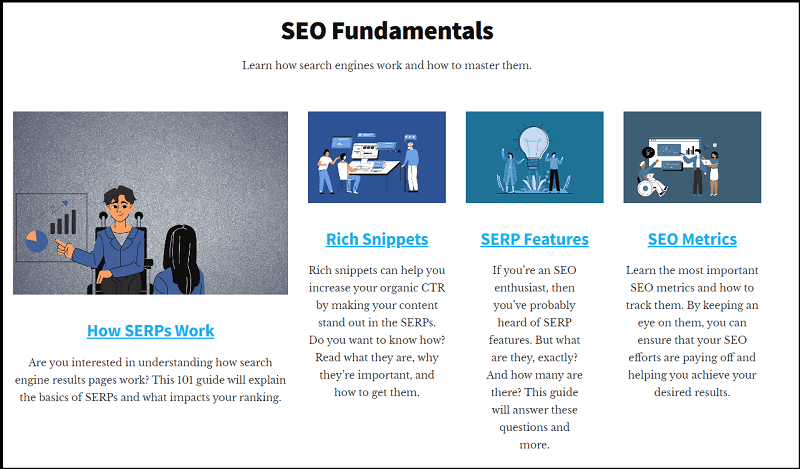
Hello, Erik,
Topical Authority of a website definitely plays an important role in boosting search engine rankings. Focusing on your content relevancy and high-quality backlinks is very important to build authority online. Thanks for elaborating the topical authority in detail.
Regards,
Vishwajeet Kumar
Hi Vishwajeet,
I appreciate the nice feedback.
I hope this resource can help bloggers expand their authority in their niche!
Erik, thank you for this insightful post.
Building topical authority is one of the easiest ways to boost our authority in Google searches, but it involves a lot of content on the same topic.
Following this step, as you have mentioned, is the way to go.
Do Keyword Research
Create Pillars and Clusters
Write In-Depth, Useful Content
Organize Your Site Structure
Build Quality Backlinks
They say, at least, 100 in-depth articles around a topic to start being recognized as an expert. Any thoughts?